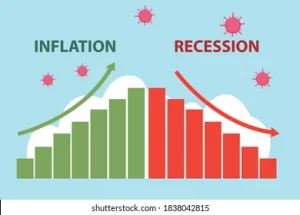
By David Akinmola
Nigeria’s insurance sector is set for a historic overhaul following President Bola Tinubu’s approval of the long-anticipated Insurance Reform Bill, a move that ushers in a new phase of capital restructuring, regulatory realignment, and market discipline in one of Africa’s most underperforming financial sectors.
Multiple credible sources within the insurance industry and the Presidency confirmed yesterday that the bill was signed into law on Friday, ending years of delay and stakeholder agitation.
While an official announcement from presidency is yet to be made public, the assent has already triggered a wave of internal consultations within insurance firms, regulatory circles, and investment analysts as the industry braces for the implications of sweeping changes.
At the heart of the reform is the new Nigerian Insurance Industry Reform Act, 2025, which replaces several obsolete laws and introduces a consolidated legal framework for insurance operations in Nigeria.
Among the repealed statutes are the Insurance Act, Marine Insurance Act, the Motor Vehicle (Third Party) Insurance Act, the National Insurance Corporation of Nigeria Act, and the Nigerian Reinsurance Corporation Act.
These outdated laws, some of which date back several decades, have long been blamed for Nigeria’s sluggish insurance development, poor consumer confidence, and investor apathy.
Perhaps the most significant component of the new Act is the mandatory increase in minimum capital requirements for insurers across all categories. Life insurance firms are now required to boost their capital base from ₦2 billion to ₦10 billion.
Non-life insurance companies must raise theirs from ₦3 billion to ₦15 billion, while reinsurance firms face a new benchmark of ₦35 billion, up from ₦10 billion.
These capital thresholds mark the first industry-wide recapitalisation effort since 2007 and are expected to reset the market by strengthening underwriting capacity, improving claims solvency, and enabling insurers to absorb large-scale risks with minimal exposure to liquidity stress.
This development follows months of legislative activity, with the Senate passing the bill in December 2024, and the House of Representatives approving it in March 2025. Industry players and market watchers have been on high alert since then, anticipating the president’s final sign-off, which has now come amid broader financial reforms aimed at stabilising Nigeria’s economy.
Insurance executives and analysts are already describing the move as a once-in-a-generation reform that could alter the trajectory of the Nigerian insurance market if fully implemented.
The higher capital requirements are expected to prompt mergers and acquisitions, reduce the number of weak and poorly capitalised players, and raise the industry’s profile among institutional investors.
For consumers, particularly policyholders who have long harboured mistrust due to delays in claims settlement and insolvency fears, the reform could be a turning point.
A senior executive at one of Nigeria’s top-tier insurers said the new law will help address systemic weaknesses that have plagued the industry, from undercapitalisation and poor governance to fragmented regulation and low product credibility.
According to him, “What we now have is a modern, comprehensive law that empowers NAICOM to act decisively, enforces risk-based supervision, and holds insurers accountable. This is not just about capital. It’s about restoring faith.”
The reform is also seen as a potential catalyst for increased insurance penetration in Nigeria, which remains stubbornly below 1 per cent of GDP among the lowest in Africa despite the country’s large population and growing economic activity. Comparatively, Kenya has a penetration rate of over 3 per cent, and South Africa exceeds 10%. Market observers believe that with stronger capital, clearer regulatory expectations, and better product design, insurers can deepen reach across Nigeria’s vast informal sector, underserved rural areas, and digital-first urban millennials.
From the regulatory perspective, the National Insurance Commission (NAICOM) now faces the critical task of setting implementation timelines, monitoring compliance, and managing market disruptions. Analysts expect NAICOM to announce a transition roadmap within weeks, possibly including phased deadlines for recapitalisation, restructuring guidance, and a framework for approvals of mergers or capital raising plans.
Already, some companies are believed to be in talks with foreign investors and private equity firms to shore up capital, while others are exploring consolidation with smaller or specialised players. Capital market experts predict that the Nigerian Exchange could see new listings from insurance firms seeking public equity as a way to meet the new requirements and boost investor confidence.
There is also the possibility that some underperforming players will exit the market entirely, unable to meet the financial demands or attract new funding. While this could shrink the number of operators in the short term, experts say the result will be a healthier, more disciplined insurance industry with better risk management capacity and operational efficiency.
The legislation also grants NAICOM stronger powers to sanction erring firms, enforce claims settlement timelines, and protect policyholders against fraud or non-performance. A Lagos-based legal expert specialising in insurance law described the law as a “power shift” that rebalances regulatory power in favour of both consumers and the market.
“This law is not just a bureaucratic update. It gives teeth to regulation, sets clearer expectations for governance, and places the responsibility for compliance squarely on the shoulders of operators,” the expert said. “This should deter the kinds of sharp practices that have eroded public trust in insurance.”
Consumer advocates are also weighing in positively. The president of a major policyholders’ association said that the reform opens the door to more effective redress mechanisms, enhanced disclosure obligations, and better responsiveness from insurers. “Too many Nigerians have had poor claims experiences, and that has kept them away from insurance products. We believe this law will help reverse that trend,” she said.
Beyond the domestic market, the reform positions Nigeria to become a more attractive hub for regional and international insurance partnerships. With the African Continental Free Trade Area (AfCFTA) gaining momentum, Nigerian insurers with higher capital and stronger compliance records could play a bigger role in insuring cross-border trade, logistics, and infrastructure projects.
An insurance economist at a West African financial consultancy pointed out that the reform could help integrate Nigeria’s insurance market with global reinsurance flows and facilitate the growth of specialised products such as agricultural insurance, parametric cover, and insurtech-driven microinsurance.
While stakeholders await an official release of the law from the Presidency, the consensus within the industry is clear: the Insurance Reform Act is a game changer. But its success will depend on execution, transparency, and the willingness of insurers to step up and embrace higher standards.
As one managing director put it, “This is our opportunity to rebuild the industry on solid ground. It’s not going to be easy, but it’s necessary. If we get this right, we will finally have an insurance sector that Nigerians can rely on.”






